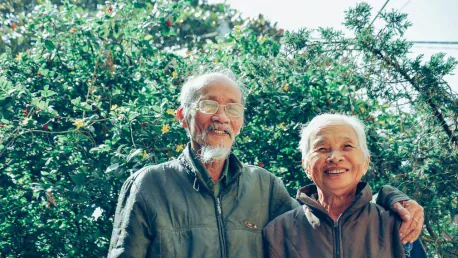China’s Ministry of Civil Affairs has pledged to enhance financial and fiscal support for the development of elderly care services, marking a significant effort to address the rapidly aging population in the country. Li Yongxin, head of the ministry’s elderly care service department, outlined a range of measures aimed at encouraging businesses and social organizations to participate in this crucial sector. Among these measures are tax-related preferential policies and improved access to financing for institutions involved in elderly care. The initiative aims to create an efficient, standardized, fair, and open market that will help meet the growing needs of China’s senior citizens.
By the end of 2023, China’s population aged 60 and above had reached 297 million, accounting for over 21% of the total population. This unprecedented demographic shift has led to an urgent need to optimize and expand the supply of elderly care services. The objective is to not only meet but exceed the diverse and personalized needs of this considerable demographic to significantly improve their quality of life. Efforts will focus on providing enhanced services in specialized institutions, senior citizens’ homes, and community centers, ensuring that care is both accessible and of high quality.
A significant component of China’s strategy involves the integration of intelligent technologies to offer more precise and accurate services for the elderly. This technological integration aims to transform the elderly care sector by making it more efficient and responsive to the specific needs of older adults. These advancements will help in providing better healthcare, improved living conditions, and more engaging activities, seamlessly blending with the everyday lives of senior citizens. The Ministry of Civil Affairs plans to leverage these technologies to create a more connected and supportive environment for the elderly, thus enhancing their overall well-being.
Cross-Industry Collaboration in Elderly Care
China’s Ministry of Civil Affairs has committed to boosting financial and fiscal support for elderly care services, addressing the nation’s rapidly aging population. Li Yongxin, head of the ministry’s elderly care service department, detailed various measures to encourage businesses and social organizations to engage in this essential sector. These measures include preferential tax policies and improved access to financing for organizations involved in elderly care. The initiative aims to create an efficient, standardized, fair, and open market to meet the growing needs of China’s senior citizens.
By the end of 2023, China had 297 million people aged 60 and above, representing over 21% of the total population. This demographic shift necessitates optimizing and expanding elderly care services to meet diverse and personalized needs, significantly improving seniors’ quality of life. The focus will be on enhancing services in specialized institutions, senior homes, and community centers, ensuring accessible and high-quality care.
A crucial part of China’s strategy is integrating intelligent technologies to deliver more precise and accurate services. This aims to transform elderly care, making it more efficient and responsive to older adults’ specific needs. These advancements will improve healthcare, living conditions, and engagement activities, seamlessly blending with seniors’ everyday lives. The Ministry plans to use these technologies to create a more connected and supportive environment for the elderly, thus enhancing their overall well-being.









